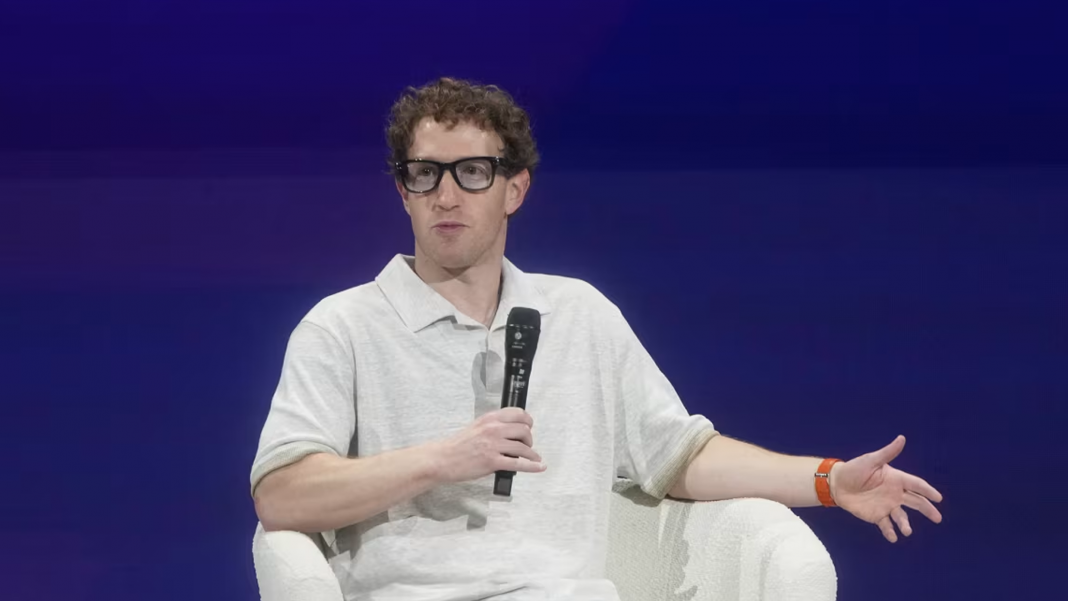As the race for artificial general intelligence accelerates, Meta’s CEO is taking matters into his own hands—restructuring company priorities and recruiting elite talent to pursue what he calls “superintelligence.”
A personal mission to dominate AI
Mark Zuckerberg is no stranger to pivoting fast. From reshaping Facebook into Meta to pushing forward the metaverse vision, his latest ambition may be the boldest yet: to build an AI-powered “superintelligence” that could one day surpass human capabilities. According to a report from Bloomberg, the Meta CEO has become directly involved in assembling a specialized team dedicated to this goal, frustrated by what he perceives as the company’s lagging performance in the AI arms race.
Sources say Zuckerberg has held private meetings with leading AI experts at his homes in Lake Tahoe and Palo Alto. He’s not merely delegating this effort to Meta’s AI research wing—he’s personally driving the project. Around 50 hand-picked AI engineers and researchers are being recruited, and the Menlo Park campus has been reorganized so this new team can operate in close proximity to his office.

Zuckerberg’s growing dissatisfaction with Meta’s latest large language model, Llama 4, appears to be a catalyst. While Meta has made AI a pillar of its infrastructure—embedding it across platforms like Facebook, Instagram, WhatsApp, and hardware like Ray-Ban smart glasses—it’s been overshadowed by competitors like OpenAI, Anthropic, and Google DeepMind.
The quest for superintelligence
Zuckerberg’s vision goes far beyond chatbots or creative tools. The ultimate goal is “superintelligence”—AI that not only equals human cognition but eventually surpasses it in every way. The first milestone on this road is artificial general intelligence (AGI), where machines can perform any intellectual task that a human can. Reaching AGI remains hotly debated in academic circles; some researchers believe we’re decades away, while others claim we’re still without a clear path.

Despite the uncertainty, the AI competition has never been more intense. Microsoft-backed OpenAI remains the frontrunner, with ChatGPT setting industry standards and reshaping consumer expectations. Google is betting on Gemini to reinvent search, while Elon Musk’s xAI and startups like Anthropic and Scale AI are rapidly gaining ground with multi-billion-dollar investments.
Zuckerberg has reportedly expressed a willingness to fund Meta’s AI superintelligence project through its advertising business, which remains the company’s financial engine. According to The New York Times, Meta is also considering a major investment in Scale AI, led by 28-year-old CEO Alexandr Wang, potentially integrating the company’s data infrastructure expertise into the superintelligence effort.
Llama, open source, and strategic positioning
One of Meta’s key differentiators in the AI race is its commitment to open-source development. Llama, Meta’s family of large language models, is freely available for use and modification—a strategy that echoes Android’s role in the mobile ecosystem. The idea is simple but powerful: by making AI infrastructure openly accessible, Meta hopes to foster widespread adoption and position Llama as the standard backbone for AI applications across industries.
Still, open source comes with trade-offs. While it accelerates innovation and broadens collaboration, it may also dilute Meta’s competitive advantage. In contrast, companies like OpenAI and Google are tightly guarding their models, offering APIs and paid products that allow more control and monetization.
Zuckerberg’s pivot toward superintelligence suggests a belief that Meta needs to take bigger risks to catch up. By building an elite internal team and focusing on long-term breakthroughs rather than incremental updates, he’s betting Meta can leapfrog competitors in a future where AI fundamentally rewrites the rules of technology.
Tech giants brace for an AI-transformed future
Zuckerberg is not alone in seeing AI as an existential inflection point. Google is bracing for the erosion of its search business, where users may turn to generative AI rather than traditional keyword queries. Apple, while late to the game, has begun revealing its own AI ambitions—aimed at reshaping how users interact with devices and apps. Even OpenAI, despite its early lead, faces pressure from newcomers and regulators alike.
Meta’s advantage lies in its ecosystem: billions of users across its social platforms, robust advertising infrastructure, and a culture that’s been reoriented toward AI-first development. But success in superintelligence won’t come from user base alone—it will require scientific breakthroughs, architectural overhauls, and perhaps most critically, the will to outpace rivals who are equally committed.
A gamble with high stakes
Zuckerberg’s renewed focus on AI comes after mixed results in his previous moonshot—the metaverse. Though still a core part of Meta’s long-term vision, the metaverse has yet to gain widespread traction. With AI, the stakes are arguably even higher. Whoever builds the first true AGI—or superintelligence—will shape the future of industry, labor, and society.
Whether Zuckerberg’s hands-on approach will pay off remains to be seen. But one thing is clear: the battle for AI dominance is no longer theoretical. It’s deeply personal, deeply funded, and moving faster than ever.






